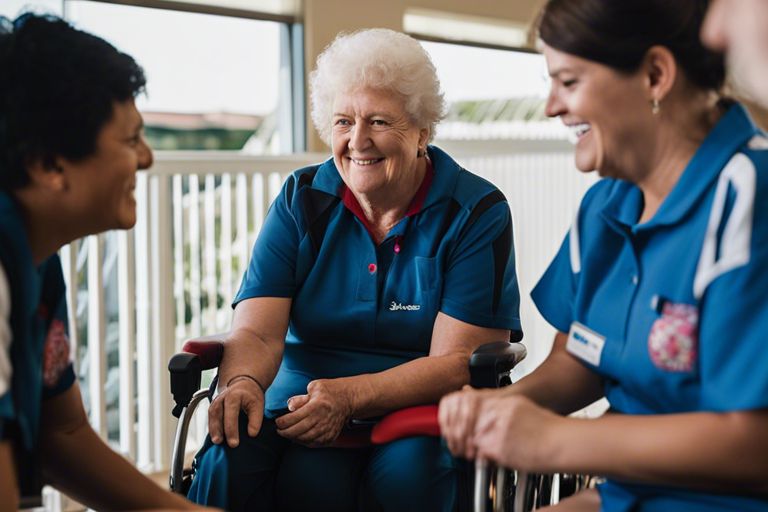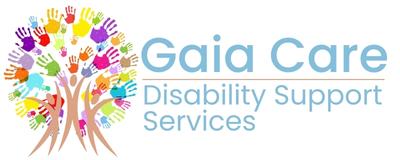It’s crucial for individuals with disabilities in Queensland to understand the various types of support coordination available to them. Navigating the system can be daunting, but with the right information and guidance, individuals can access the services that best meet their needs. In this blog post, we will explore the different types of disability support coordination in Queensland, ranging from Support Connection to Support Coordination and Specialist Support Coordination. Understanding these services is crucial for individuals and their families to make informed decisions and receive the necessary support to enhance their quality of life.
Key Takeaways:
- There are different types of Disability Support Coordination (DSC) in Queensland: These include Support Connection, Support Coordination, Improved Life Choices, and Coordination of Supports. Each type focuses on specific areas to assist individuals with disabilities.
- Support Connection: This type of DSC helps participants understand and implement their NDIS plans. It focuses on connecting individuals with disability to services and supports in the community.
- Support Coordination: Support Coordination is more intensive and directive compared to Support Connection. It involves developing service agreements, managing service budgets, and addressing barriers to the implementation of NDIS plans.
- Improved Life Choices: This type of DSC assists individuals with complex needs in managing their NDIS plans. It focuses on strengthening their ability to design and direct their supports independently.
- Coordination of Supports: This type of DSC assists participants in coordinating their supports, implementing their plans effectively, and navigating the NDIS system. It aims to enhance the individual’s ability to manage their supports and achieve their goals.
Overview of Disability Support Coordination
Definition and Goals
Support Coordination is a service provided to individuals with disabilities to assist them in navigating the complex support system. The primary goal of Support Coordination is to empower individuals to make informed decisions, access appropriate services, and achieve their goals for independence and inclusion in the community.
The Role of Support Coordinators
Support Coordinators play a crucial role in advocating for individuals with disabilities and ensuring that their needs are met. They work closely with clients to understand their unique circumstances, develop support plans, and connect them with relevant services and resources. Support Coordinators also provide guidance on the National Disability Insurance Scheme (NDIS) and assist individuals in maximizing their funding to meet their goals.
Types of Disability Support Coordination Services
The provision of disability support coordination services in Queensland encompasses a range of support options that cater to the diverse needs of individuals with disabilities. There are three main types of disability support coordination services available in the region, namely Specialist Support Coordination, General Support Coordination, and Crisis Support Coordination. Each type of support coordination service is tailored to address specific needs and requirements to ensure the well-being and empowerment of individuals with disabilities and their families.
Specialist Support Coordination
Coordination involves providing specialized support to individuals with complex needs that require intensive and highly individualized assistance. Specialist Support Coordinators are trained professionals with in-depth knowledge of disability services and resources, enabling them to create comprehensive support plans that address all aspects of an individual’s life.
General Support Coordination
Any individual with a disability who requires assistance in navigating the disability support system can benefit from General Support Coordination. This type of coordination involves working with individuals to identify their goals and needs, connecting them with relevant services and supports, and monitoring their progress to ensure their needs are being met effectively.
Crisis Support Coordination
On occasions where individuals with disabilities face immediate and critical situations that require urgent intervention, Crisis Support Coordination services are imperative. Support providers in this area are trained to respond quickly and effectively to crisis situations, ensuring the safety and well-being of individuals while working towards long-term solutions.

Accessing Disability Support Coordination
Eligibility Criteria
Many individuals with a disability in Queensland are eligible for Disability Support Coordination. Eligibility criteria typically require the individual to have a permanent or significant disability that impacts their daily functioning and ability to access services and supports.
The Referral and Assessment Process
On receiving a referral for Disability Support Coordination, the individual will undergo an assessment to determine their specific needs and goals. This assessment helps in creating a personalized support plan that addresses the individual’s unique requirements and aspirations.
It is vital for the individual to actively participate in the assessment process by providing accurate information about their disability, support needs, and preferences. This ensures that the support plan is tailored to their requirements, maximizing the benefits of Disability Support Coordination.
Best Practices in Support Coordination
Person-Centred Approaches
Now, a vital best practice in disability support coordination is the adoption of person-centred approaches. This approach prioritizes the individual’s goals, preferences, and needs, ensuring that all support services are tailored to empower the person with a disability and enhance their quality of life.
Collaborative Planning and Implementation
For effective support coordination, collaborative planning and implementation are crucial. This involves working closely with the individual, their family, support networks, and service providers to develop a comprehensive support plan that addresses all aspects of the person’s life, including health, social, and community participation.
Plus, ongoing communication and coordination among all parties are vital to ensure that the support plan is being effectively implemented and adjusted as needed. Regular reviews and updates help to monitor progress, identify any challenges or changing needs, and ensure that the individual is receiving the best possible support.
Conclusion
Drawing together the various types of disability support coordination in Queensland, it’s evident that individuals with disabilities have access to a range of services tailored to meet their specific needs. With options such as Support Connection, Support Coordination, or Specialist Support Coordination, individuals can find the right level of assistance to help them navigate the National Disability Insurance Scheme effectively. To learn more about support coordination services, visit Support Coordination.
FAQ
Q: What is Disability Support Coordination (DSC)?
A: Disability Support Coordination (DSC) is a service in Queensland that assists individuals with disabilities in accessing and coordinating the support services they need to live a more independent and fulfilling life.
Q: What are the types of Disability Support Coordination available in Queensland?
A: In Queensland, there are two main types of Disability Support Coordination: Support Connection and Coordination of Supports (SOC) and Specialist Support Coordination (SSC).
Q: What is Support Connection and Coordination of Supports (SOC)?
A: SOC is designed for individuals with lower or more straightforward support needs. It focuses on linking individuals with disability to services and supports in their community and helping them navigate the National Disability Insurance Scheme (NDIS).
Q: What is Specialist Support Coordination (SSC)?
A: SSC is for individuals with more complex or high-level support needs. It involves developing comprehensive support plans, resolving barriers to service delivery, and coordinating multiple services and supports to meet the individual’s specific needs.
Q: How can I access Disability Support Coordination in Queensland?
A: To access Disability Support Coordination in Queensland, individuals must have an approved NDIS plan that includes funding for Coordination of Supports. They can then choose a registered NDIS provider offering DSC services in their area.
Gaia Care Disability Support Services
We provide disability services to the greater North Brisbane and Moreton Bay Communities. Our services include:
- Individual Support
- Overnight Support
- Social Support
- SIL – Supported Independent Living
- Respite Care
- Community Access
- Personal Care
- Transportation
- Assistance With Medication
- Mindful Activities

